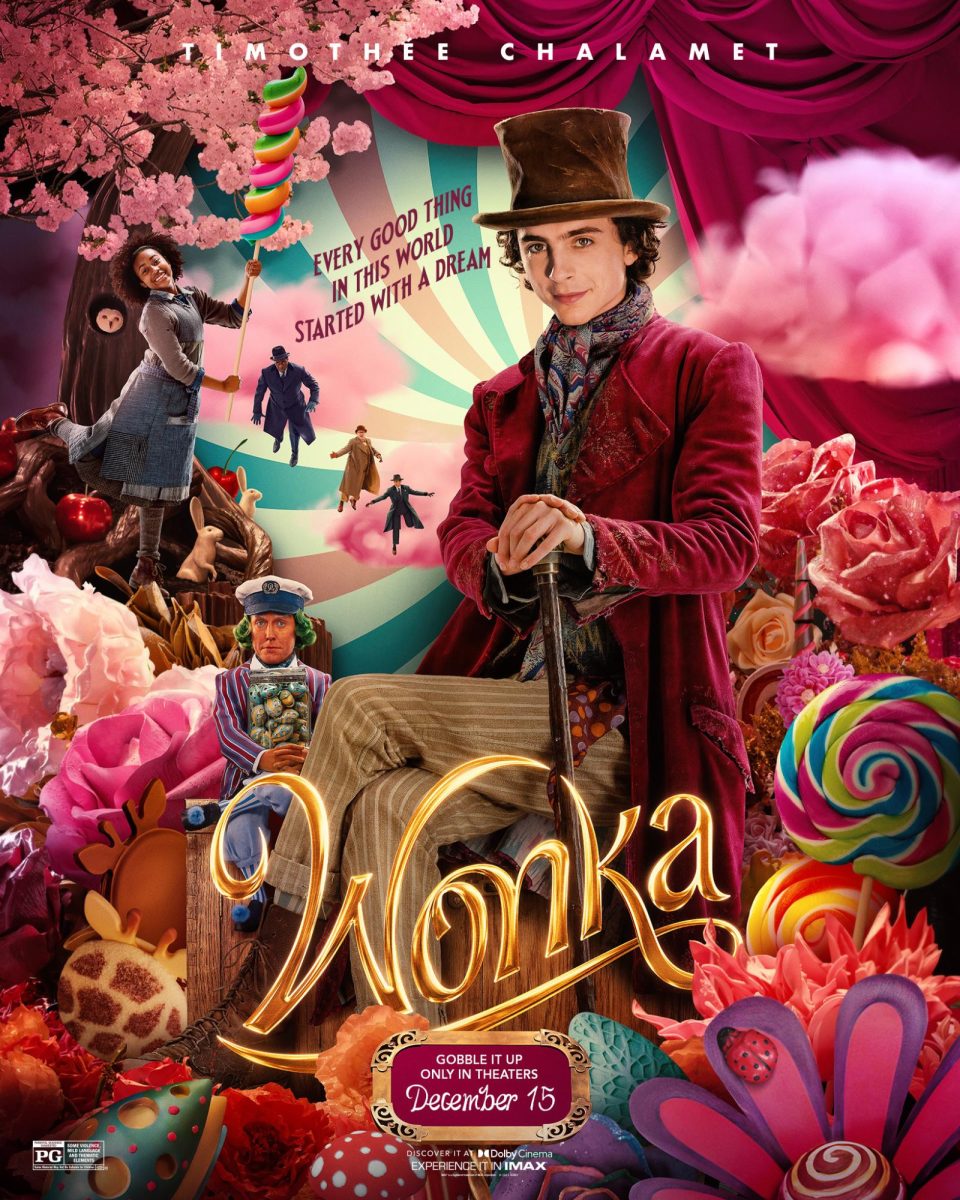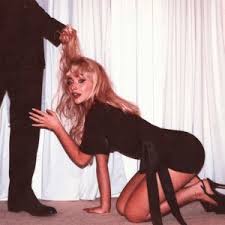Walking into the movies to see “Wonka,” the comfy seats and buttery popcorn couldn’t dismiss my fear of the movie being an absolute letdown. Luckily, to my surprise, I enjoyed it so much that I even listened to the soundtrack on my way home.
Warner Brothers’ newest release, “Wonka,” is an exploration into Willy Wonka’s early adulthood and how he started his career. Bringing in over $534 million worldwide, the question of how the movie became so popular comes into play. Was it the completely new approach to the story? Was it the musical aspect? Maybe the heavy publicity? Or was it the casting of Timothée Chalamet as Willy Wonka?
The new Wonka kept the whimsical spin of the tale, and was more feel-good than previous adaptations of the story. Chalamet is nowhere as off-putting or creepy as Gene Wilder’s original Willy Wonka, but it fortifies the theory that Wonka was blissful and as he was cooped up in his factory, his childish sparkle faded, leaving him simply dull and creepy.
So what makes the story of Willy Wonka so compelling that we continue to retell it and add to it?
The original interpretation, “Willy Wonka & the Chocolate Factory,” is such a unique story, combining childish views with a creepier, eerie reality. Of Roald Dahl’s classics, Wonka is undeniably the most timeless and charming, combining a mystical and supernatural chocolate factory with the joy and anticipation of finding a golden ticket and getting to see the true wonders inside the chocolate factory.
Of course, the story has been mostly targeted towards children, except for the part in the Gene Wilder version where they go through the tunnel (I always closed my eyes during this part). The playful mystery of candy that makes people fly in a factory run by strange creatures with orange skin perfectly fits the fantasy idea that is so crucial in any children’s movie.
The newest interpretation doesn’t delve into the actual chocolate factory, as it explores a younger Wonka’s past and how he became such a renowned chocolate maker. This window to the past answers confusion about how Wonka became so bitter with such an impractical job. He lost his mother in childhood and was targeted by swindlers. Despite the sad parts of his life, Wonka’s songs and playful characters still kept the movie’s target audience on track.
Adding to this curiosity, watchers were likely drawn to the film to see Timothée Chalamet as a younger Willy Wonka. Chalamet grew extremely popular in 2017 after appearing in “Lady Bird” and “Call Me by Your Name”. Since then, he’s appeared in numerous blockbuster films and is a huge hit with teenage girls.
Chalamet’s adaptability to the role tied the movie together extremely well. From the addictively catchy songs to the heartfelt connections between characters, Chalamet poured his heart into this movie and brought the young and naive Wonka to life, letting viewers see a new side to Willy Wonka that they had never seen before.









Carolina Quinn | Jun 17, 2024 at 6:23 PM
Wonka was a beautiful movie ,despite all the evilness that he encountered ! The movie message to me was never to give up on your dreams, no matter what gets thrown at you ! Wonka was very innocent, and when he experienced the deceptions in the chocolate world
I think that was what made him wacky
And bitter later in life !!